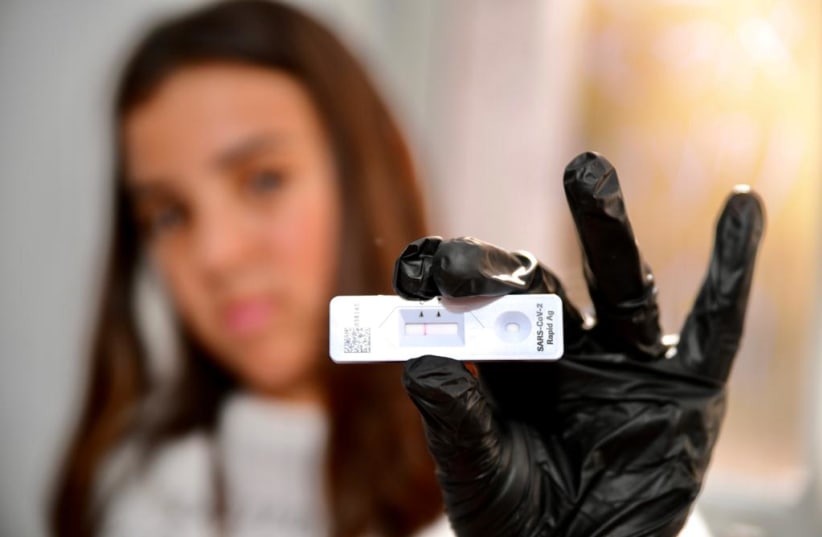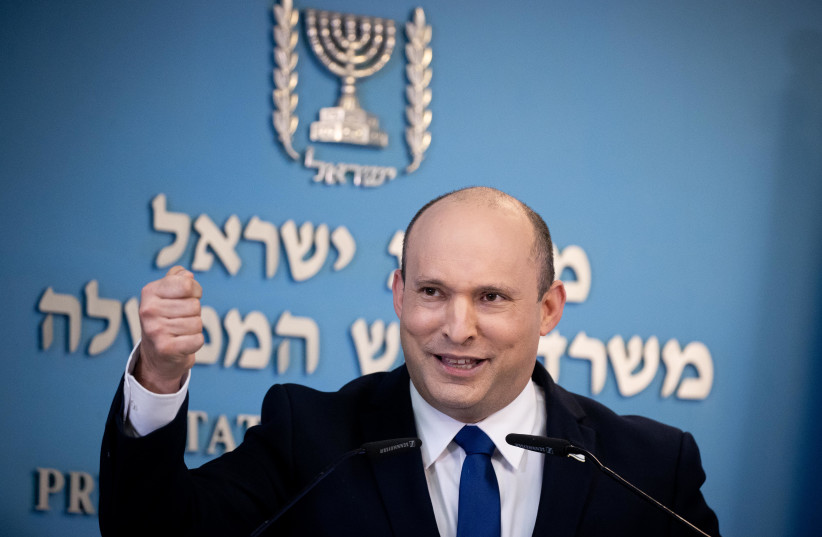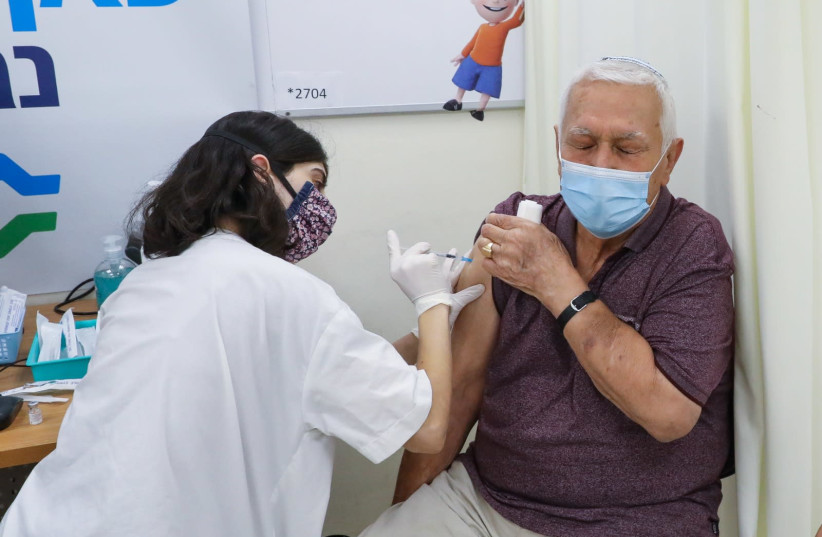The country’s coronavirus testing centers were packed with individuals vying to check if they were positive for COVID-19 on Sunday, ahead of the Rosh Hashanah holiday. The government chose not to add any new restrictions ahead of the High Holy Days, but asked Israelis to be responsible and screen themselves for the virus before gathering for meals and prayers.
According to media reports, as many as 200,000 people asked to be tested on Sunday - not including the tens of thousands of Israelis who bought rapid antigen tests that they could take at home.
"We are on the threshold of a new year. We hope that it will be a better and calmer year than its predecessor. We will welcome it together, everyone with their family,” said Prime Minister Naftali Bennett at the start of the Sunday cabinet meeting. “I would like to happily and cautiously inform you today that we have rejected the pressures and avoided a lockdown over Rosh Hashanah. Continue to uphold the directives so that we will remain open also on Sukkot and Simchat Torah.”
He said that a holiday without lockdown should not have been seen as a given and warned the public that “this story is far from being behind us. It is precisely now that, in this period that is so close, we need to be even stricter about masks and distancing and to uphold the directives of the education system. We must watch ourselves and our achievements.”
The prime minister said that students will need to retest for coronavirus at home before returning to school after the holidays, once again in an attempt to catch sick children before they bring the virus to school. This time, he said, he would like students in the country’s daycare centers to be screened as well.
The rapid antigen tests taken by students on August 31 caught 8,000 cases of the virus, the Education Ministry said, and kept what would have otherwise been some 180,000 students out of isolation
However, the start of the school year has significantly increased the number of sick and isolated children. Some 2,000 preschools and classrooms are closed, and 33,000 students are in isolation. There were 43,000 infected students on Sunday - some 17,000 were reportedly infected since the start of the school year.
Going forward, students may also be required to test for coronavirus at home once a week, the Prime Minister’s Office told The Jerusalem Post. Prime Minister Naftali Bennett has asked the Education Ministry to look into such an operation that could go into effect immediately after the holidays.
On Sunday morning, the Health Ministry reported some 91,000 active cases, the highest number since the beginning of the pandemic. Until now, the highest number before that was 88,000, registered at the peak of the third wave in January.
However, by Sunday night the figure had dropped to 84,000. In addition, the number of serious patients remained stable. This is largely because at least half of Israel’s new daily cases have been individuals under the age of 18 in recent days.
There were 5,001 new cases on Sunday night, the Health Ministry said. That was a low number compared to the more than 10,000 cases that the country had seen most days last week.
However, only around 50% of the number of people were tested on Saturday - 90,368. Of those screened, 5.75% had a positive result.
As of Sunday, there were 679 people in serious condition. Since the start of the pandemic, 7,154 people have died of the disease.
The third booster shot has been part of Israel’s secret sauce for lowering infection.
So far, 2.6 million Israelis have received the booster “in a situation where the world has not yet decided what it is doing and is still considering and debating,” Bennett said.
Beginning October 1, only people who have received the third shot or who have been vaccinated (or recovered) for less than six months are going to be eligible for the permanent green pass – which grants access to several venues and activities. Those who aren’t will be required to undergo a rapid corona test at their own expense, while children ages 3-11, who are too young to get vaccinated, will still be able to do one for free.
In addition, the Knesset Law and Constitution Committee decided Sunday that children with disabilities – around 50,000 people in the country – are going to be exempt from the requirement to present a green pass like toddlers and babies under three.
Earlier in the day, a group of seven Israeli hospitals – including Jerusalem’s Hadassah University Medical Center and Shaare Zedek Medical Center – halted their strike after almost two weeks as a consequence of an agreement reached with the Health and Finance ministries.
The hospitals will receive some NIS 960 million by the end of the year. In addition, the parties’ representatives will work on another agreement for the 2022 budget by the beginning of November.
Following the development, the hospitals resumed their full operations.
“Happy with the end of the strike at the independent hospitals and with them returning to full operation,” Health Minister Nitzan Horowitz wrote on Twitter. “I know and understand their needs and we have reached an agreement.”
“For the first time since the establishment of the state, I was able to have included in the state budget direct funding for these hospitals,” he added. “With the agreement and the end of the strike, we have taken another step to strengthen our healthcare system.”
The so-called “public” hospitals are independent organizations that in the past had mostly relied on donations, as opposed to facilities directly owned and funded by the government or health funds.
Besides the two major facilities in Jerusalem, they also include Netanya’s Laniado Medical Center, Ma’aynei Hayeshua Medical Center, Bnei Brak, and three hospitals in Nazareth, together serving two million people, or about 20% of the population.
Last winter, the hospitals also went on strike over their prolonged financial crisis. The protest was over after the government committed to allocate them the needed funding.
However, the strike began again last month after part of the promised resources were not transferred.


